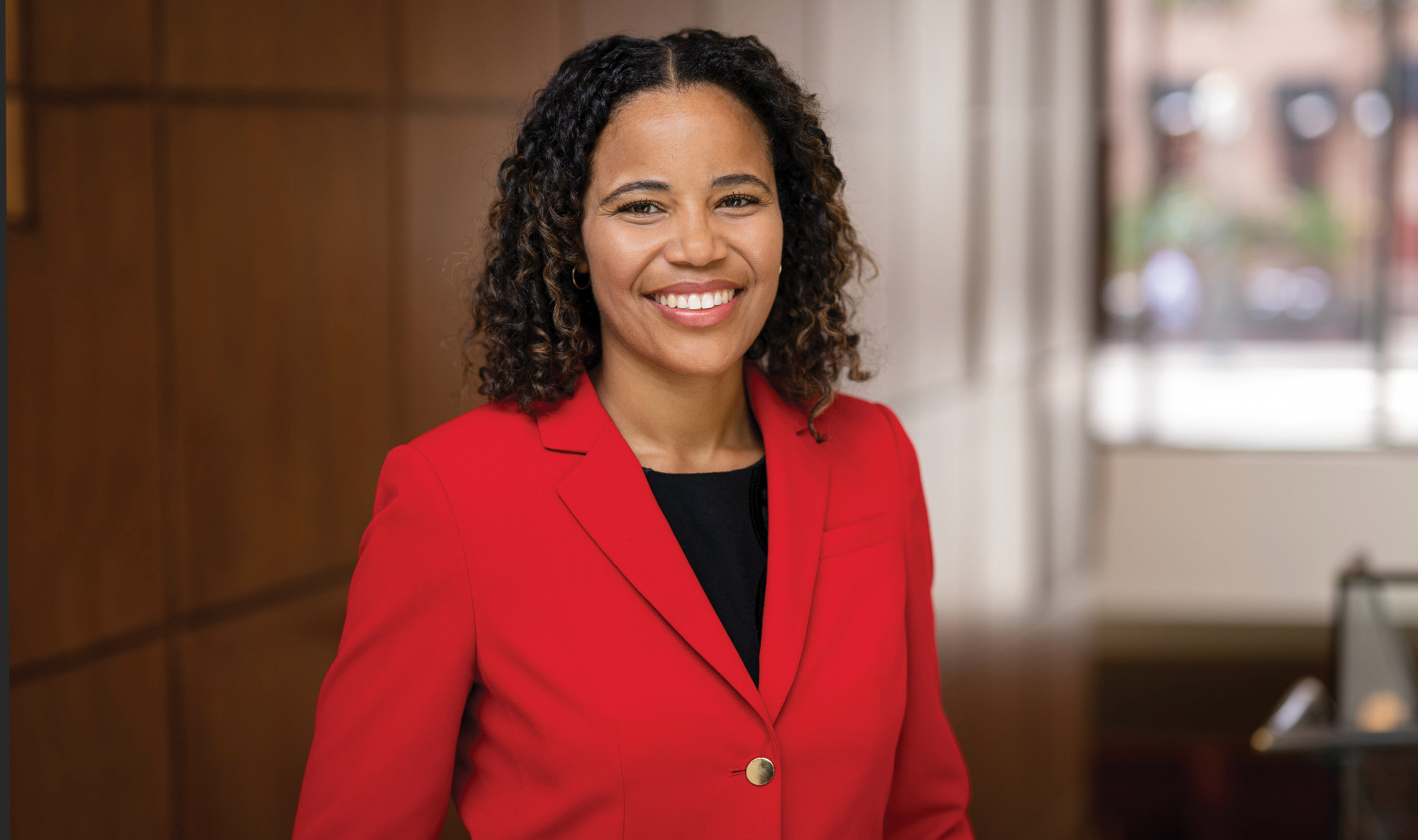
New Advocacy for Racial and Civil Justice Clinic Aims to Address Inequities in the Community
The clinic’s name was inspired by Dr. Martin Luther King, Jr.’s famous quotation that “the arc of the moral universe is long, but it bends towards justice.” It launched in the spring with eight law students and provides legal support to members of the Philadelphia community seeking redress for racial subordination in the areas of education, public safety, and economic, health, and environmental justice.
Practice Associate Professor of Law Cara McClellan GEd’12 is the director of the new clinic, which was established in response to students’ requests for more emphasis on civil rights law.
“For this first semester, we’re really focusing on education equity and public safety as two issue areas,” she said. “We’ve been doing listening sessions to hear from folks locally in the community…and some issues we’re hearing about are employment discrimination, school discipline, racially discriminatory policing, and access to resources in schools.”
The problems are not surprising to McClellan, who, before earning her law degree from Yale, was a middle school teacher in her native Philadelphia.
She valued her experience at the majority Black, low-income school, she said, but the disparities between her school and those on the Main Line were glaring. “It bothered me that we had second-hand books in bad condition, it bothered me that the state of the facility, both in terms of our school lacking access to technology and also in terms of rodents—all those things bothered me, because the message it sends to students is that our society is not as deeply invested in you and your future,” McClellan said.
Director of the Advocacy for Racial and Civil Justice Clinic and Practice Associate Professor of Law
At ARC, students work with local organizations including the Paul Robeson House in West Philadelphia and the Abolitionist Law Center. “I’m co-counsel in a case with them already, and they’re going to continue to be a key partner for the clinic,” McClellan said of the Law Center. “Getting insight from the law firm of [Senior Fellow] David Rudovsky has been critical as well.”
She said she has an interest in pursuing climate justice issues at the clinic, adding that she and her students have heard minority community members voicing concern about access to clean air, water, and healthy foods in schools. “It impacts health and well-being, and it’s definitely an area we want to focus on,” she said.
In addition to honing movement lawyering skills, students will also represent clients in litigation at the trial and appellate levels. McClellan—who was Assistant Counsel at the NAACP Legal Defense & Educational Fund, where she specialized in racial justice impact litigation—is well-prepared to instruct her students. She said she hopes the students gain a keener ability to analyze problems from a racial justice standpoint and also develop problem-solving strategies for systemic issues.
“Being from Philadelphia, it’s particularly important to me for students to learn about this city, to gain a historical understanding of how the inequities that exist today developed, but also how to build relationships and ties to the community,” McClellan said. “I hope they understand that yes, this is a city that is facing serious challenges, but also a city with so many assets and … so much to love as a member of the community while they’re here—and maybe, hopefully, they’ll stay beyond.”